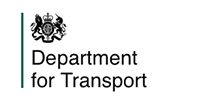
As part of plans to promote clean alternative fuels, the government is offering funding for projects in the UK to develop low carbon waste-based fuels for planes and lorries, with matching funding from industry.
The government is already planning to revolutionise the motor industry with ultra-low emission electric cars, and now we are going further and investing in a new generation of fuels which will power our aircraft and lorries.
Trials of sustainable jet fuel, made from waste materials, have taken place in Europe and North America, and now the launch of a UK competition will see British experts conduct pioneering research in this sector.
The department has already had interest from more than 70 groups in bidding for the funding.
The new fuels are chemically very similar to conventional fuels, so can be used in existing aircraft without the need for any engine modifications.
The low carbon transport fuels made from waste materials could be worth £600 million a year to the British economy by 2030, and could also support up to 9,800 new jobs.
Transport Minister Jesse Norman said:
"We are committed to cutting carbon emissions and promoting new environmentally-friendly fuels that will help us meet that goal.
"We are making funding available to innovative businesses which will lead the way in developing alternative fuels that are efficient, sustainable and clean.
"We want every new car and van in the UK to be zero emission by 2040, but we know lorries and aeroplanes will rely on more traditional fuels for years to come so we must promote environmentally friendly alternatives."
The £22 million fund could help us deliver up to 5 new low carbon fuel plants by 2021. The money is available to projects that will produce low carbon waste-based fuels, to be used in planes and lorries where it is not viable today to switch to electric power, because of the large weight of the vehicles.
Planes and lorries powered by waste fuels could use up to 90% less carbon than traditional fossil fuels.
The Future fuels for flight and freight competition is part of the government’s ‘Modern industrial strategy’, which sets out to support evolving industries with the potential to boost the economy.
The government is committed to cutting greenhouse gas emissions by 80% by 2050, and transport emissions must be slashed if we are to meet that target.
Biofuels made from waste products could be even more sustainable than current crop-based biofuels, already used in some road-based vehicles.
About The UK Department for Transport
The UK Department for Transport works with our agencies and partners to support the transport network that helps the UK’s businesses and gets people and goods travelling around the country. We plan and invest in transport infrastructure to keep the UK on the move.




Comments
There are no comments yet for this item
Join the discussion